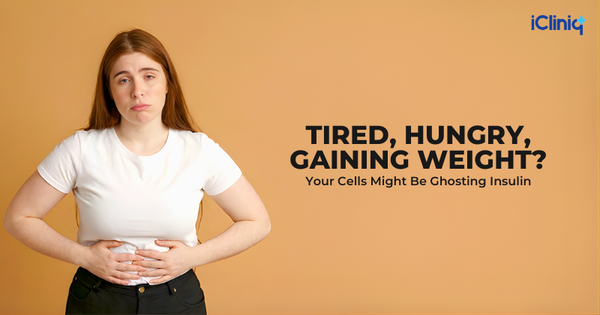Feel Fuller, Live Healthier: Surprising Benefits of a Fiber-Rich Diet

Fiber is the part of plant-based foods that your body can't digest, and that's exactly what makes it so useful. It passes through your system, helping to clean things up and keep your digestion on track.
There are two types of fibers: soluble fiber dissolves in water and helps lower cholesterol and manage blood sugar. Insoluble fiber adds bulk to your stool and helps keep things moving smoothly through your digestive system. Both types work together to support your gut and, by extension, your whole body.
Why Does Fiber Help You Feel Fuller and Happier?
One of the biggest benefits of fiber? It keeps you feeling full longer. It slows down digestion and helps keep your blood sugar steady, which means you're less likely to experience sudden cravings or energy crashes. But that is not all. A fiber-rich diet can:
- Help manage your weight naturally, without strict diets.
- Support your heart by lowering LDL (bad) cholesterol.
- Improve digestion and reduce bloating.
- Lower the risk of diabetes by regulating blood sugar.
- Support your immune system by feeding the good bacteria in your gut.
Simply put, fiber does a lot more than we give it credit for.
Are You Getting Enough?
Let us be honest, most of us are not. The recommended daily fiber intake is around:
- 30–38 grams for men.
- 21–25 grams for women.
Yet, on average, most of us get only about 15 grams per day. It is not hard to see why our modern diets are filled with processed foods, and many of them are stripped of their natural fiber. Here are some signs you might be falling short:
- Frequent snacking or hunger soon after eating.
- Irregular digestion or constipation.
- Blood sugar spikes or dips.
- Low energy or sluggishness.
Easy Ways to Add More Fiber to Your Diet
You do not need a total diet overhaul. Just a few small swaps can make a big difference:
- Choose whole grains like oats, brown rice, or quinoa instead of white bread or pasta.
- Snack on fruits, nuts, or seeds instead of chips or cookies.
- Add a handful of chickpeas or lentils to soups, salads, or stir-fries.
- Start your morning with chia pudding, oatmeal, or berries.
- Keep the skin on fruits and vegetables whenever possible; that's where a lot of the fiber lives.
Gut Health, Mood, and Fiber: A Surprising Connection
Here is something you might not expect: the fiber you eat can actually affect your mood. Why? Because fiber feeds the good bacteria in your gut, and your gut and brain are closely connected. A healthy gut can support better mental clarity, emotional stability, and even better sleep. So yes, what you eat really does affect how you feel, physically and emotionally.
Small Changes, Real Results
Adding more fiber into your meals is not about restriction or cutting things out; it is about nourishing your body better. You'll feel more satisfied after meals, experience fewer cravings, and support nearly every system in your body, from digestion to heart health.
Let your food work for you. Every fiber-rich bite is a step toward more energy, better balance, and a healthier, more vibrant you.




